Simple Paper Towel Chromatography Experiment for Kids
One of my favourite experiments to do with the younger students when I taught secondary school science was Chromatography – of course in my lab I had all of the equipment I needed including filter paper, different mixed up inks and solvents to use. But it’s so easy to do at home and my kids were fascinated by this very simple Kitchen Science experiment, science at home is so much fun and we’re taking part in the A to Z of science organised by Frogs Snails and Puppy Dog Tails this month check out all of the details for more at home science with kids.
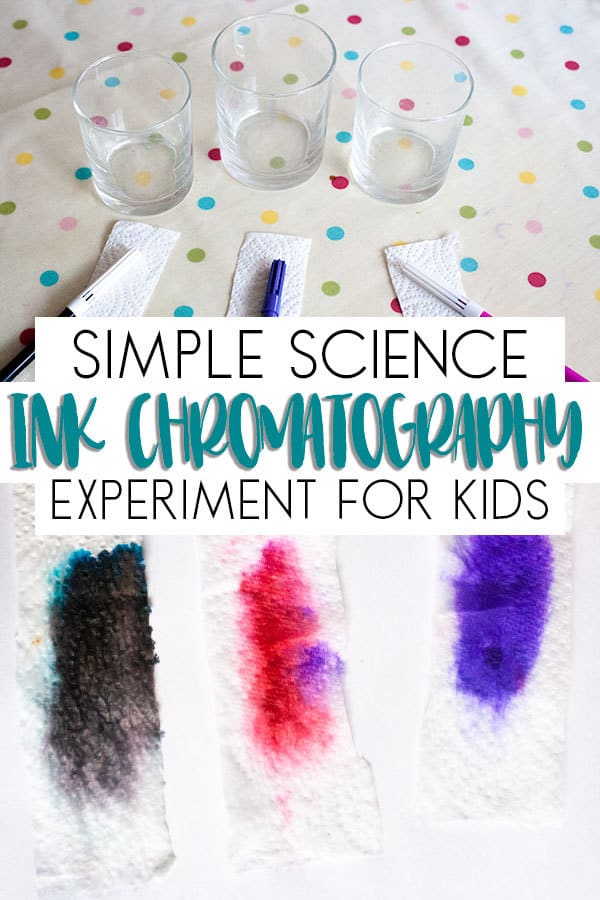
When we were painting the kids asked for black paint and unfortunately we had run out of it and that we could mix it up – I said yes but it’s not easy to make as black isn’t really a colour and neither is white so I set about proving it to them with a black pen to see what colours it was actually made up of.
Materials needed for this Simple Chromatography Experiment
Glass
Water
Paper Towel
Water Soluble Marker Pen (any washable marker) – black plus other colours of your child’s choice
How to do this Paper Towel Chromatography Experiment

With a kitchen paper towel we cut up 3 strips and selected 3 different coloured marker pens – a black plus a pink and a purple.
I explained that we were going to split the ink in the pens into the different colours that it was made of using a method called chromatography and then I asked what they thought would happen. My eldest said that the pink would split into a white and a red cause that’s what made pink, the younger one joined in and suggested that purple would be red and purple. But black was black and from trying to make the colour with their paints they couldn’t do it.

On the strips of paper towel I drew a circle around an inch from the bottom for them to colour in with the different colours and filled up a glass with around 1/4 inch of water.
They then put the paper towel into the water – make sure that you don’t let the ink spot touch the water and we folded the paper over the glass to hold it in place.

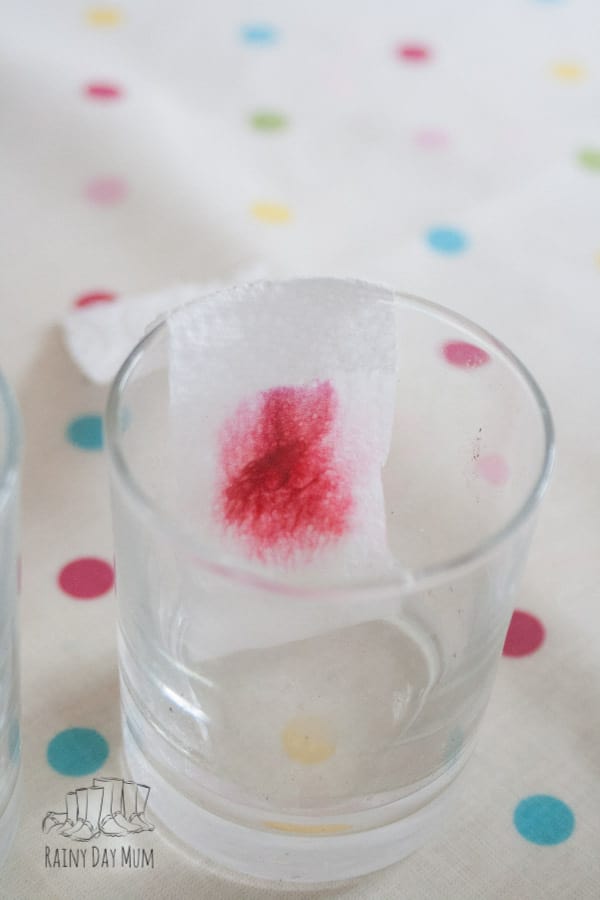
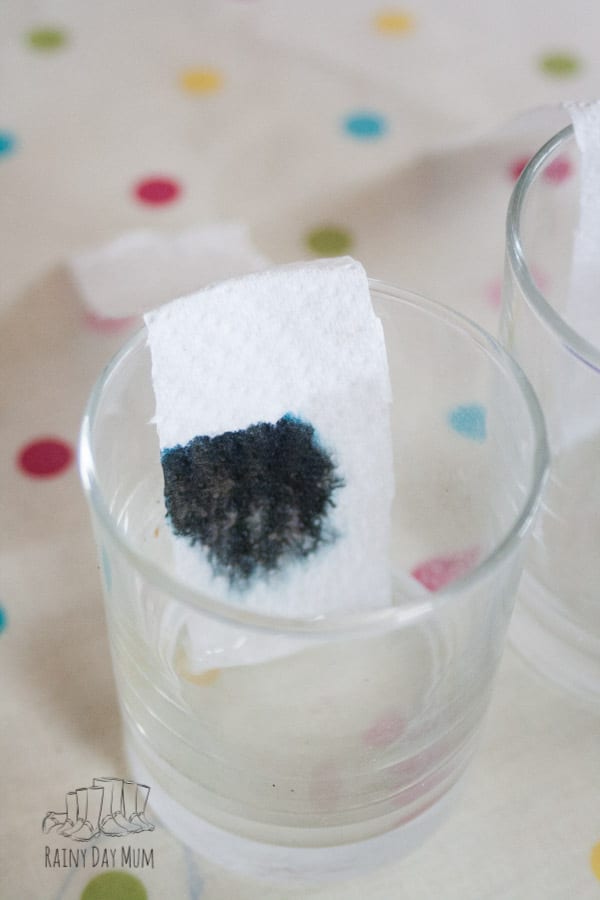
As we watched the water travelled up the paper towel through the ink spot – as it went up through the ink spot it split the colours that made up the different inks and headed up the paper.

When the ink had travelled to the paper at the top of the glass we removed it and placed it on a sheet of white paper to dry and then looked at the colours.
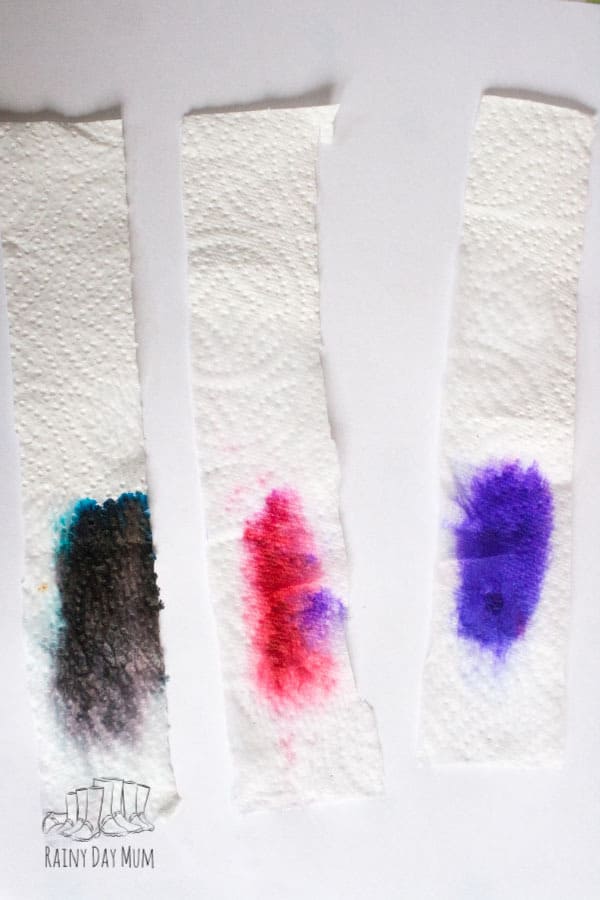
The Purple ink was a true purple, the pink was made up of different colours of pink and red that travelled different distances but the black ink was the most revealing and the kids loved looking at the dried paper towel.
How Chromatography works
As I said I used to teach this with my secondary school students – using different ink mixes – black ink works really well as an example because it is made up of different colours – each of the colours has a different polar value.
With paper Chromatography, the paper is non-polar none reactive to the water solvent as it is made up of cellulose. When the ink meets the water the more polar the colour is further it will travel through the paper in our example the red is the least polar staying near to where the black spot was – the yellow the next and then the blues most polar travelling up the furthest from the black spot.
Try these other easy Science Experiments to do at Home
Growing Crystals without Borax
Exploring Plant Structure with Celery
Seeing how roots grow with beans in a jar experiment
Testing Materials – what makes balls bounce
Energy transfer with a cotton reel car
Viewing the Constellations – with a show box viewer
Exploring how colours are made (no mess experiment using light)
Sea Turtle Conservation Lessons away from the Beach
Extending
A great extension of the experiment is to collect all of the different makes of black ink washable markers that you have in the house and repeat the experiment to see what different colours each of the inks are made from.
Don’t forget to check out the rest of the A to Z of Science Experiments for kids at Frogs and snails and puppy dog tails.
Pin this Simple Paper Towel Chromatography Experiment to Do Later
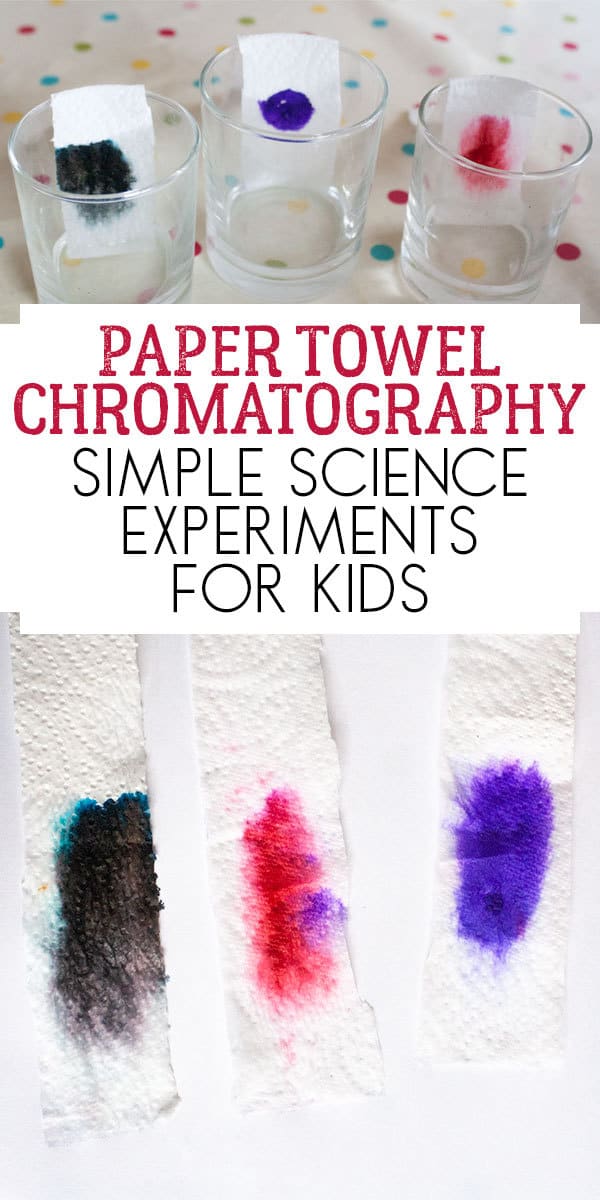


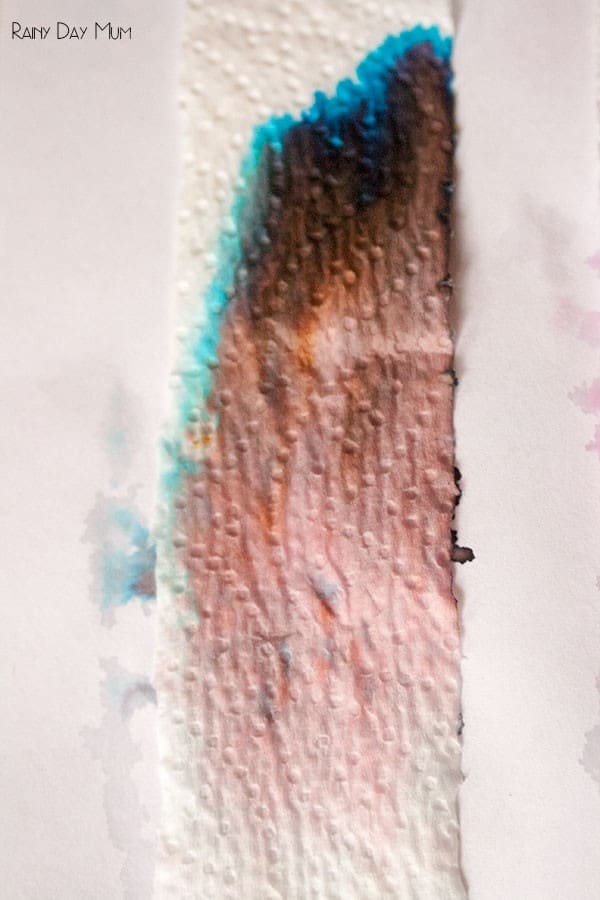
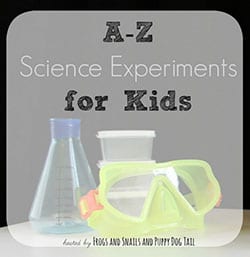
What a brilliant idea, I’m going to show my kids this in the week.